With the onset of the spring season, we begin to start preparing for the mosquito bites and the irritation caused because of it Mosquitoes are not only a nuisance but also a health threat. Hence it becomes very important to control them and reduce their population around your home and other living and recreational areas.
A very well-known and effective way to keep the mosquitoes away for longer periods is by using a mosquito fogger. Many people also use homemade mosquito fogger solutions. The efficient forms are known to do their jobs best with maximum efficiency up to 72 hours.
Foggers can be bought for personal use, or you can hire professionals to help you keep your yard out of their reach. Of course, it is not a full-proof solution, but they do offer temporary clearance from these bloodsuckers.
When To Use a Fogger?
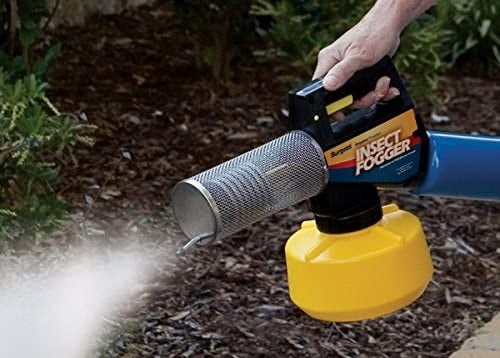
The foggers can work only if the mosquitoes are already flying around. It kills the adult forms and later on acts as a repellent. The chemical mixture used in foggers can prevent mosquitoes from getting into the area sprayed with it. So, if you tend to go out in your garden or yard, is it better to use the fogger prior at least by a day. The Ideal time to use a fogger and catch these flying pests is later in the day when they come out to feed and are in full flight.
What Chemicals are Found in a Fogger?
The potential ingredients of a mosquito fogger are Larvicides and adulticides. Larvicides kill the mosquitoes found on the surface of the water while adulticides are used to kill mid-flight adult mosquitoes. Other than these, the rest ingredients are common to the ones used in any bug spray but in lower concentrations.
Is it Safe?
If you are worried that the foggers are safe for children or pets, then consider this. The concentration of chemicals used in foggers is so minimal that most research studies show farming pesticides to be much stronger than them. So, it is very safe for kids and animals. In fact, they can go out just 10 minutes after the spray has been applied without worrying about inhaling dangerous chemicals.
However, you need to take extra precautions with pets as they might eat the plants that were sprayed directly, and that can be hazardous for them.
Types of foggers
Your choice of foggers will rely on the situation that you are facing. You might be looking for several types of foggers to choose the one that can reap you the most benefits. To help you understand the types better, here is the types available.
There are basically two varieties of foggers- a Thermal Fogger, which creates the steamed pest repellent using heat, and Cold Foggers, where pressurized steam is used to release the steam.
Cold Foggers
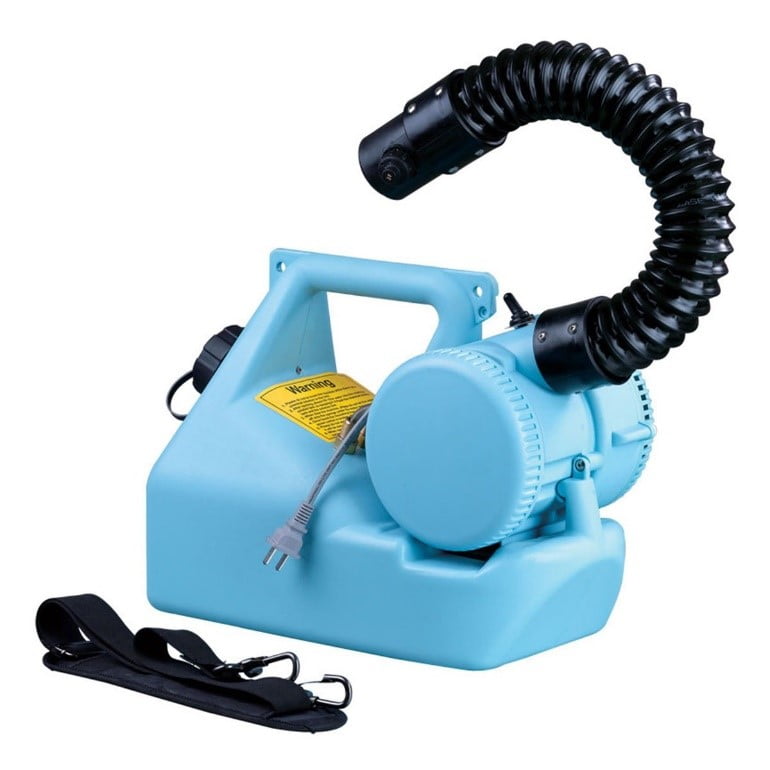
In this option, you can find ULV Foggers. They have a motor-generator inside them which monitors and modifies the air pressure. They operate using electricity and among the most common cold fogger option, there is by far.
Thermal Foggers
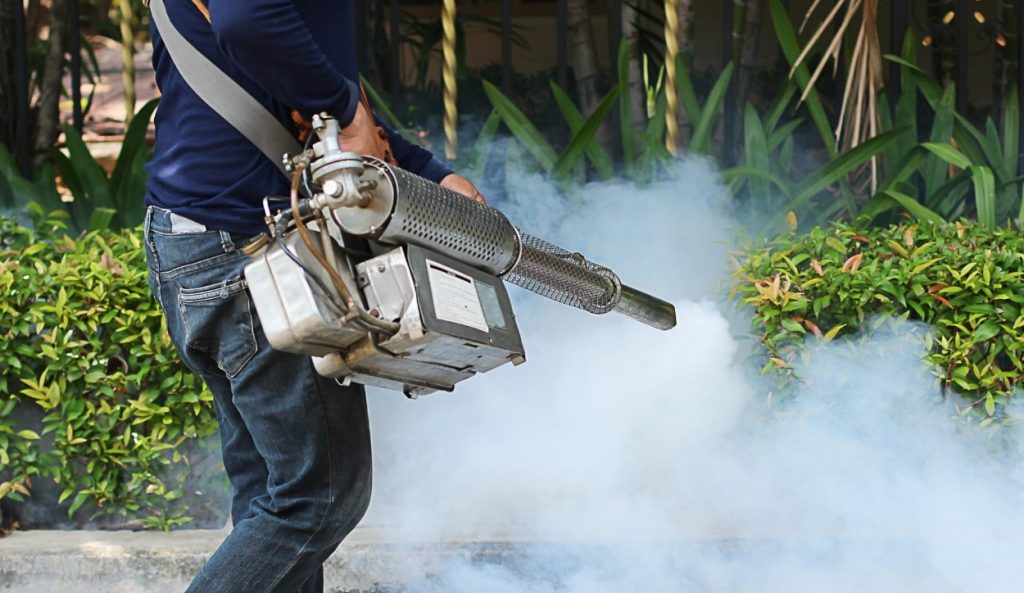
- Propane-powered foggers- Here the mixture is heated up and sprayed around using propane mixture. No additional power source is required. Interestingly, the propane tanks are sold separately instead of being sold together with the foggers.
- Electric foggers- Here electricity is used to up the solution. The only drawback here is that they heat up to a very high temperature when in use. Rest assured they are safe to use if you wish them to use indoors.
- Another type is commercial foggers which are both electric and gas. However, they are not used for homes instead are used for larger areas like warehouses or barns.
Do Mosquito Foggers really work?
Yes, a little bit though. It is important to understand that foggers only kill adult mosquitoes that are in the direct vicinity of the foggers. They will do nothing to address the problem of eggs and larvae in your garden.
Apart from this, they also act topically, which means they cannot get into locations where the mosquitoes can hide, like underneath the deck or in bushes, shrubs, etc. Also, if you are getting them from counter retailers it might have active ingredients that do not really work well for long.
Maximizing the efficiency of Foggers
For starters, scan the spraying area for nests or breeding dens. These are the ones that can be problematic for the foggers. As mentioned earlier, it mainly acts upon the adult forms, and killing larvae are not one of its perks. In these cases, it is best to take professional help.
Once you have monitored or handled the breeding area, schedule weekly or monthly spraying with help or do it by yourself. Spray at least twice a week or whenever you feel the mosquitoes are returning. You can make fogging routine; it will ensure that the grass and shrubbery stay clear of nests and passing insects.
Conclusions
A mosquito fogger can be a great go-to solution to keep your garden and yards stay steer clear of mosquitoes. It is also considered the safest option due to the minimal quantity of chemicals it has and its decent work against the mosquito population around.
As we saw there are various types of foggers available that can fit your needs. If you want more enhanced performance for your family, you can always go for professional help. Also, when done professionally, the mosquito population can reduce drastically in your yard.

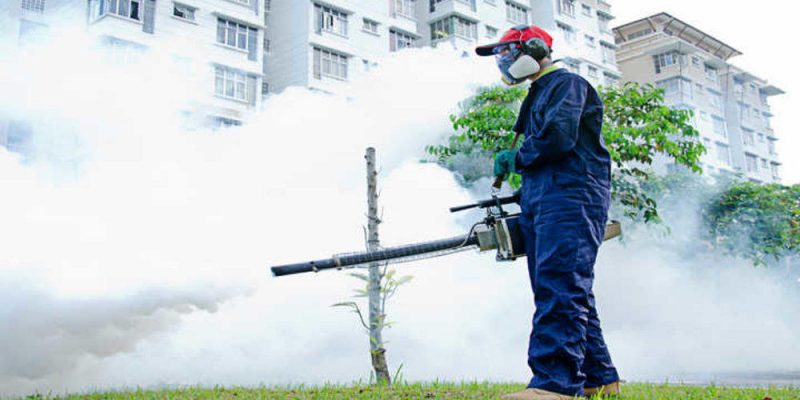

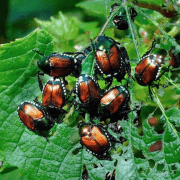

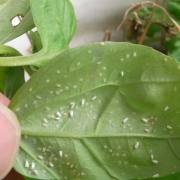
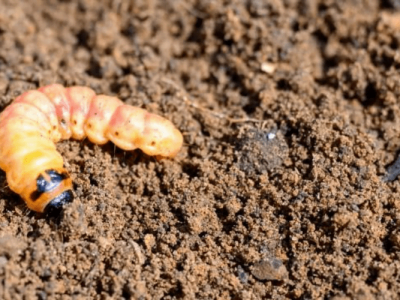
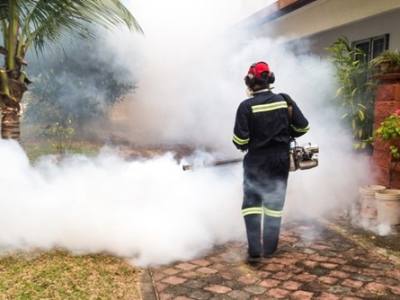
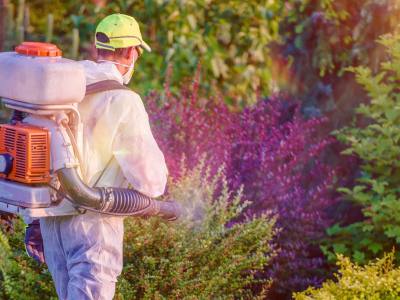

Comments